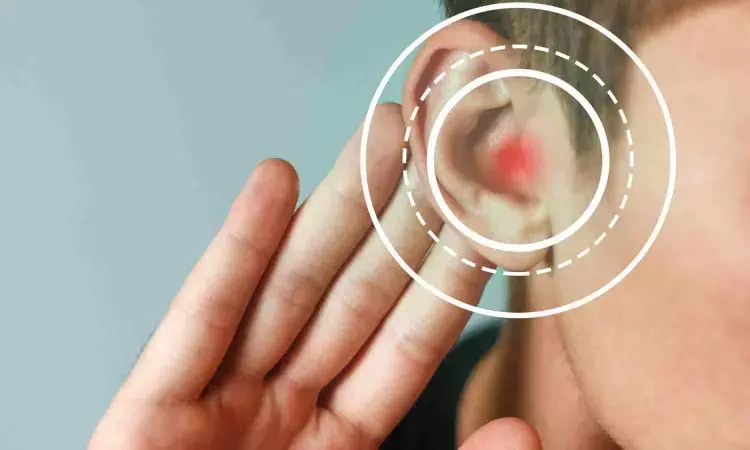- Home
- Medical news & Guidelines
- Anesthesiology
- Cardiology and CTVS
- Critical Care
- Dentistry
- Dermatology
- Diabetes and Endocrinology
- ENT
- Gastroenterology
- Medicine
- Nephrology
- Neurology
- Obstretics-Gynaecology
- Oncology
- Ophthalmology
- Orthopaedics
- Pediatrics-Neonatology
- Psychiatry
- Pulmonology
- Radiology
- Surgery
- Urology
- Laboratory Medicine
- Diet
- Nursing
- Paramedical
- Physiotherapy
- Health news
- Fact Check
- Bone Health Fact Check
- Brain Health Fact Check
- Cancer Related Fact Check
- Child Care Fact Check
- Dental and oral health fact check
- Diabetes and metabolic health fact check
- Diet and Nutrition Fact Check
- Eye and ENT Care Fact Check
- Fitness fact check
- Gut health fact check
- Heart health fact check
- Kidney health fact check
- Medical education fact check
- Men's health fact check
- Respiratory fact check
- Skin and hair care fact check
- Vaccine and Immunization fact check
- Women's health fact check
- AYUSH
- State News
- Andaman and Nicobar Islands
- Andhra Pradesh
- Arunachal Pradesh
- Assam
- Bihar
- Chandigarh
- Chattisgarh
- Dadra and Nagar Haveli
- Daman and Diu
- Delhi
- Goa
- Gujarat
- Haryana
- Himachal Pradesh
- Jammu & Kashmir
- Jharkhand
- Karnataka
- Kerala
- Ladakh
- Lakshadweep
- Madhya Pradesh
- Maharashtra
- Manipur
- Meghalaya
- Mizoram
- Nagaland
- Odisha
- Puducherry
- Punjab
- Rajasthan
- Sikkim
- Tamil Nadu
- Telangana
- Tripura
- Uttar Pradesh
- Uttrakhand
- West Bengal
- Medical Education
- Industry
Hearing loss and voice disorders increase the risk of depression: Study

A recent study published in the The Laryngoscope identified significant links between hearing loss, voice disorders and depression. This research utilized data from the Korean National Health and Nutrition Examination Survey (KNHANES) to highlight the underexplored relationship between expressive communication impairments, like dysphonia and mental health.
The study analyzed data from over 8,500 individuals aged 19 to 80 years which was collected across two periods: 2008-2012 and 2019-2020. This comprehensive dataset from KNHANES included both audiometry and self-reported voice disorder information which allowed for a robust examination of the impacts on mental health.
The key findings of this study were;
Individuals with hearing loss, defined as a pure tone average of ≥25 dB, showed a 27% increased likelihood of depression when compared to the individuals without hearing loss. This finding illuminates the significant mental health risk associated with receptive communication impairments.
Self-reported voice disorders were found to be an even stronger predictor of depression where the affected individuals underwent a 48% higher chance of being diagnosed with depression. This emphasizes the pivotal role of expressive communication in mental well-being.
The participants who suffered from both hearing loss and a voice disorder underwent the highest risk. They were nearly 1.8 times more likely to undergo depression when compared to the individuals with neither impairment. This suggests a compounded effect where difficulties in both receiving and expressing communication significantly impact the mental health.
These findings reveal the substantial mental health risks posed by both hearing loss and voice disorders. While hearing loss has been previously acknowledged as a risk factor for depression, this research illuminates the significant yet overlooked impact of the voice disorders. The combination of these impairments poses an even greater risk that is likely due to the cumulative difficulty in both incoming and outgoing communication.
The outcomes of this study suggest that these results highlight the need for comprehensive healthcare strategies that address both types of communication impairments. Integrating mental health support with auditory and speech therapies could be beneficial in reducing the risk of depression among the affected individuals.
Overall, this study offers crucial insights into the interplay between communication disorders and mental health. This demonstration of the independent and combined effects of hearing loss and voice disorders on depression could pave way for more holistic approaches to treat, prevent and ensure better mental health outcomes for the individuals with communication impairments.
Reference:
Rameau, A., Tucker, L. H., Denham, M. W., Kang, Y. J., Choi, N., Lachs, M., Rosen, T. E., Stewart, M., Czaja, S., & Golub, J. S. (2024). Voice Disorders and Hearing Loss May Be Additive Risk Factors for Depression in a National Cohort. In The Laryngoscope. Wiley. https://doi.org/10.1002/lary.31536
Neuroscience Masters graduate
Jacinthlyn Sylvia, a Neuroscience Master's graduate from Chennai has worked extensively in deciphering the neurobiology of cognition and motor control in aging. She also has spread-out exposure to Neurosurgery from her Bachelor’s. She is currently involved in active Neuro-Oncology research. She is an upcoming neuroscientist with a fiery passion for writing. Her news cover at Medical Dialogues feature recent discoveries and updates from the healthcare and biomedical research fields. She can be reached at editorial@medicaldialogues.in
Dr Kamal Kant Kohli-MBBS, DTCD- a chest specialist with more than 30 years of practice and a flair for writing clinical articles, Dr Kamal Kant Kohli joined Medical Dialogues as a Chief Editor of Medical News. Besides writing articles, as an editor, he proofreads and verifies all the medical content published on Medical Dialogues including those coming from journals, studies,medical conferences,guidelines etc. Email: drkohli@medicaldialogues.in. Contact no. 011-43720751


